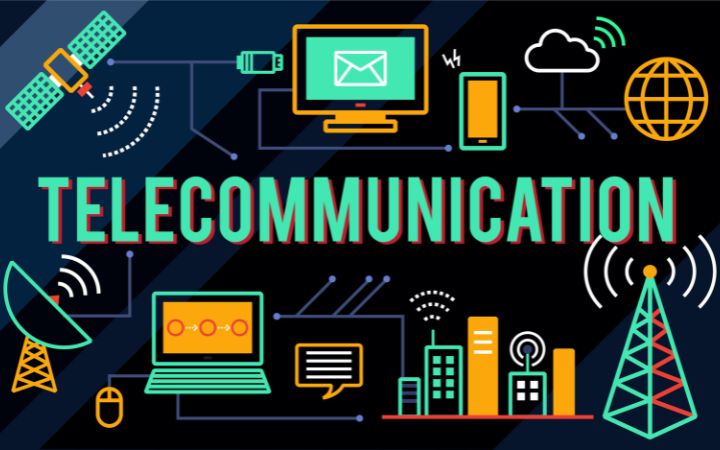Time Management: How To Be More Productive In 2023

Many professionals and companies enjoy access to capital, employees, technologies, and other resources that make it easier for them to achieve success. However, there is a more important and influential differentiator than the ones mentioned above: time.
Time management is the number one skill to develop in your life, and it will benefit you personally and professionally. High-level entrepreneurs, those who achieve the best results in their projects, manage, week after week, the time they have at their disposal.
Business leaders of our time understand the importance of proper time management but are especially aware of all the challenges faced today with the abundance of digital distractions. Although digital tools to “make us more productive” are always present, the paradox arises in which these tools are the worst sources of distraction themselves.
Navigating these time management challenges with fluency and agility will make all the difference. Let’s explore managing time better and being more productive in 2023.
Always Work With A Calendar
We calculate in detail the euros that our company earns and spends. We know how much we pay each provider and how much each customer owes us. We understand how much interest we are paying the bank and how that will affect our finances in the future.
But do we do the same with our time? Do we know where it is going and how much we invest in different activities? To achieve this, the calendar is our best friend. It is an essential tool to decide where our time is going, and we can invest it better in the future.
If we work with a calendar, we know how we spend our time and can reduce our investment in certain activities. We may not only discover that we are spending too much time in meetings but also make an effective decision to reduce the number of meetings we attend and the length of those meetings.
The calendar represents your main tool to regain control of your time and not allow other people (without any bad intentions, of course) to misuse it.
Implement Reminders
One of the benefits of the digital tools available today is the ability to set reminders easily. Products like Google Calendar and Todoist allow you to manage all your tasks and assign brief details (day and time) so that you receive timely reminders via email or notification on your mobile.
Reminders through digital tools are especially useful for time-sensitive activities, such as calls, specific events, payments, and customer follow-up.
Define Your Week (And Month) As Much As Possible
Depending on what you do professionally, organizing your week (and month) of work will be less or easier. Here the calendar is your best friend, allowing you to organize your time visually.
Please find the best way to do it. Every Sunday, at the end of the day, organize the week. Or Monday morning. Experiment with different times of the week to find the right one for this planning session. Each session serves to define priorities and use your available time efficiently.
Avoid Multitasking
Enough bullshit: multitasking doesn’t make you more productive. On the contrary, multitasking is the main enemy of your productivity. Your ability to focus on the task in front of you will define your success at what you do, and multitasking directly sabotages that ability.
Not only is multitasking counter productive to your goal of concentrating, but it also has a serious biological cost on the brain that will lead to decreased performance over time and serious problems with concentration and cognitive abilities.
Eliminate multitasking from your life by focusing on one activity at a time. Practice mindfulness whenever possible, especially at work. Decide to be exclusively present in what you do, leaving the rest of your duties for the appropriate moment. When you do, you will notice an improvement in productivity and a reduction in your stress levels.
Eliminate Potential Distractions
Related to the trend of practical multitasking, we must recommend the elimination of all possible distractions. Some examples of the distractions that are killing your ability to be productive or productive are:
- Your mobile, even if you are using it for work.
- Your email inbox multiple times a day.
- Websites are irrelevant to what you are doing at the moment.
- Unproductive meetings, without a clear agenda, and unnecessarily long.
- Social networks.
From this list, social networks are likely the most toxic and pervasive distraction in your daily life. If you are a social media victim, make a conscious effort to remove it as much as possible.
The problem with distractions lies in the time we waste on them and their subsequent effect on our concentration. Returning to the interrupted task costs us additional energy and time.
Learn To Say “No”
Learning to say “No” can be tremendously difficult for many professionals, especially younger ones. When we are entrepreneurs, many people demand our time. Teammates want help with certain tasks, involvement in projects, or even delegate responsibilities. Then there are the clients, who often demand our attention almost immediately.
Whatever the case, we must learn to value each situation and learn to say no. All of these situations have the potential to take away our time irretrievably. When we cannot say “no” randomly at these moments, our time is wasted without being able to do anything else to get it back.
Understand Which Activities To Delegate And Do It
Especially relevant for professionals with dependents, it is important to learn how to delegate effectively. No entrepreneur can do it all, especially when your business grows and scales. Trying to do this is a popular recipe for failure. When we say “understand what activities to delegate,” we mean objectively observing our duties and identifying what we can delegate to others inside or outside our organization. We often do things that someone else could do without realizing it.
A dangerous habit among many entrepreneurs is to micro-manage. This is “delegating” activities to employees but always supervising the process and the results. This not only defeats the purpose of delegating but also affects the team’s performance, indicating distrust in the employee’s capabilities.
Practice, Practice, Practice
Like everything in life, especially in the professional world, practice is everything. Learning to manage our time better is an activity that improves with practice. Being more productive results from better habits within our routine and nothing else. It cannot happen dramatically overnight but through the conscious exercise of our abilities.
Also Read: Labour Dispute Resolution: Complete Guide For 2023






